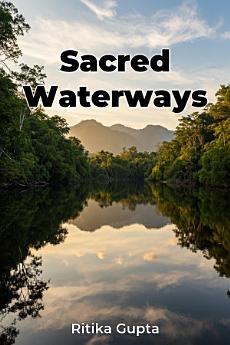Sacred Waterways
About this ebook
The book begins by introducing the concept of water as sacred, then details how indigenous groups utilized waterways for fishing, agriculture, and hunting. It explores the ceremonies, myths, and artistic expressions associated with these resources. ""Sacred Waterways"" challenges conventional narratives by prioritizing indigenous knowledge, offering valuable insights into ecological balance that are increasingly relevant in the face of climate change.
Examining environmental history, the book further investigates the disruptive impacts of colonization, modern development, and climate change on indigenous water rights. Highlighting indigenous perspectives, the book advocates for integrating indigenous knowledge into contemporary water resource management policies, offering models for sustainability and ecological balance applicable to current challenges.








